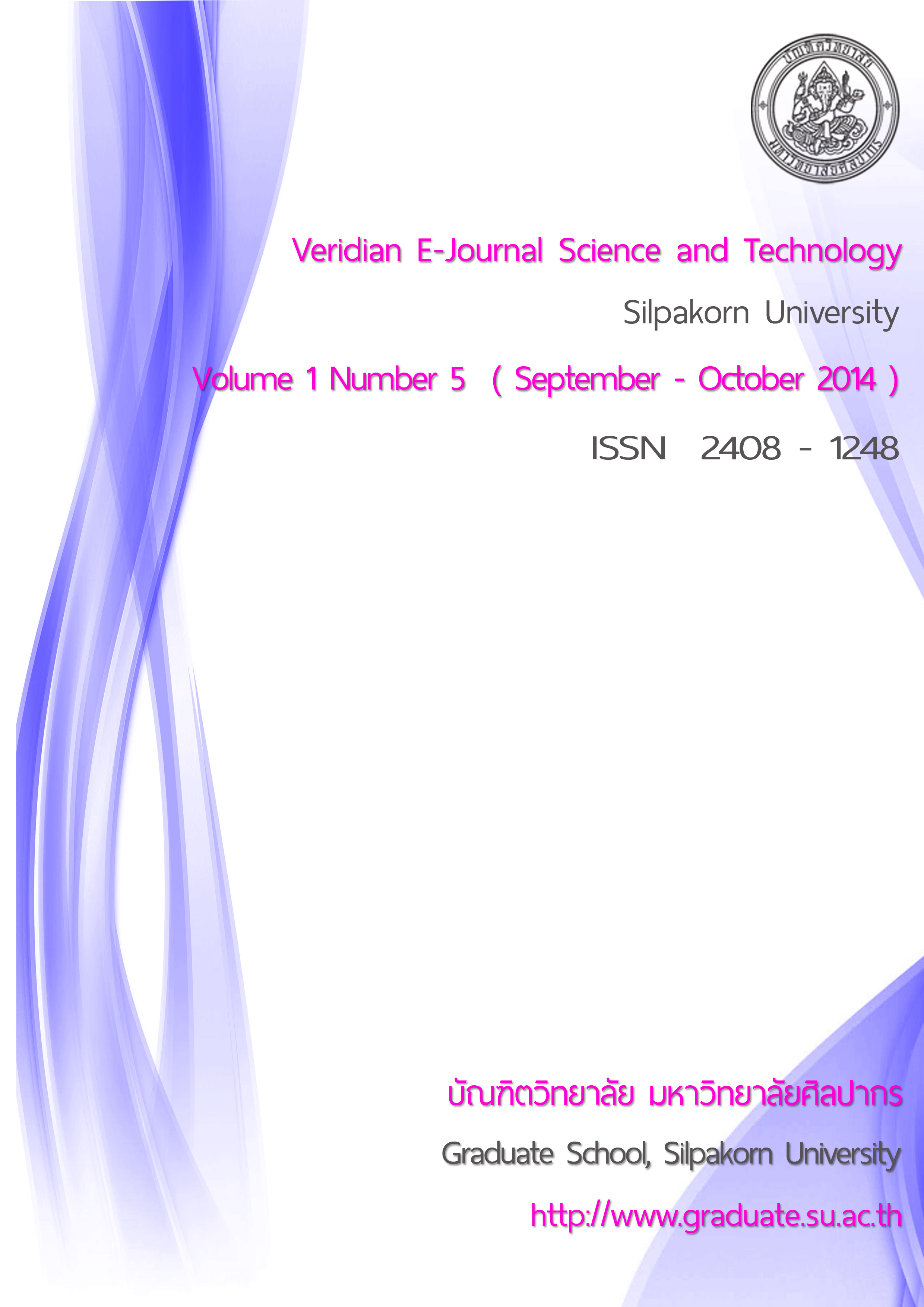การประยุกต์แบบแผนความเชื่อด้านสุขภาพร่วมกับแรงสนับสนุนทางสังคม เพื่อส่งเสริมการตรวจคัดกรองมะเร็งปากมดลูกของสตรีอายุ 30-60 ปีที่ไม่เคยตรวจคัดกรอง
Main Article Content
Abstract
บทคัดย่อ
การส่งเสริมการตรวจมะเร็งปากมดลูกของสตรีช่วยให้สามารถค้นพบโรคในระยะเริ่มต้น สามารถลดความรุนแรงของการป่วยและตาย การวิจัยนี้เป็นการวิจัยกึ่งทดลองเพื่อศึกษาผลของโปรแกรม สุขศึกษาที่ประยุกต์แบบแผนความเชื่อด้านสุขภาพร่วมกับแรงสนับสนุนทางสังคมเพื่อการส่งเสริมการเข้ารับบริการตรวจคัดกรองมะเร็งปากมดลูกของสตรีอายุ 30-60 ปีที่ไม่เคยตรวจคัดกรอง ในเขตพื้นที่รับผิดชอบของโรงพยาบาลส่งเสริมสุขภาพตำบลบ้านภูมิ อำเภอดอนตูม จังหวัดนครปฐมจำนวน 60 คน แบ่งเป็นกลุ่มทดลองและกลุ่มเปรียบเทียบกลุ่มละ 30 คน กลุ่มทดลองได้เข้าร่วมโปรแกรมสุขศึกษาจำนวน 3 ครั้ง เป็นระยะเวลา 5 สัปดาห์ เก็บข้อมูลก่อนและหลังโปร แกรมด้วยแบบสัมภาษณ์ วิเคราะห์ข้อมูลด้วยสถิติ จำนวน, ร้อยละ, ค่าเฉลี่ย, Paired Samples t-test, Independent t-test และ Chi-Square test
ผลการศึกษา พบว่า ภายหลังการทดลอง สตรีกลุ่มทดลองมีคะแนนเฉลี่ยการรับรู้โอกาสเสี่ยงของการเกิดโรคมะเร็งปากมดลูก การรับรู้ความรุนแรงของโรคมะเร็งปากมดลูก การรับรู้ผลดีของการมารับบริการตรวจมะเร็งปากมดลูก และการรับรู้ต่ออุปสรรคในการมารับบริการตรวจคัดกรองมะเร็งปากมดลูกสูงกว่าก่อนการทดลองและสูงกว่ากลุ่มเปรียบเทียบอย่างมีนัยสำคัญทางสถิติ (p<0.05) และมาเข้ารับบริการตรวจคัดกรองมะเร็งปากมดลูกมากกว่ากลุ่มเปรียบเทียบอย่างมีนัยสำคัญทางสถิติ (p<0.001) แสดงให้เห็นว่าโปรแกรมสุขศึกษามีประสิทธิผลทำให้สตรีอายุ 30-60 ปีที่ไม่เคยตรวจคัดกรองไปเข้ารับการตรวจคัดกรองมะเร็งปากมดลูก ดังนั้น โรงพยาบาลส่งเสริมสุขภาพตำบลที่มีบริบทคล้ายคลึงกันสามารถนำไปประยุกต์ใช้โดยเฉพาะกิจกรรมช่วยลดอุปสรรคของการไปรับการตรวจคัดกรอง สำหรับการวิจัยครั้งต่อไป ควรนำทฤษฎีกลยุทธ์การตลาดเพื่อสังคมมาประยุกต์ใช้กับโปรแกรมสุขศึกษา
Abstract
Promoting cervical cancer screening is useful for early diagnosis of cervical cancer, which can lower severity of the illness and the incidence of death of cervical patients. This study was quasi-experimental research aiming to access the effectiveness of a health education program applying the health belief model and social support for cervical cancer screening among women aged 30-60 years who had never been screened. The research was carried out in the areas responsible for by Ban-Poom Sub-district Health Promotion Hospital, Dontoom District, NakhonPathom Province. The sample was 60 women aged 30-60 years, 30 each in the experimental and the comparison group. The experimental group participated in the program 3 times for 5 weeks. Data collection was done before and after the program by using the interviewing-schedule developed. Data analysis was done by computing statistics such as frequency, percentage, arithmetic mean, Paired samples t-test, Independent t-test and Chi-square test.
The results showed that after the experimentation, the experimental group had significantly higher mean scores in regard to perceived susceptility of getting cervical cancer, perceived severity, perceived benefits of getting screening service, and perceived obstacles of getting screening service than before the intervention and higher than the comparison group (p<0.05). A significantly higher number of the experimental group was found to get the screening service than the comparison group (p<0.001). This finding is evidence that the health education program operated effectively in making women aged 30-60 years who had never been screened for cervical cancer to get the screening service. Thus, other Sub-district Health Promotion Hospitals, with the similar context, can apply this type of health education program, specially the health education activities used to lower the women’s obstacles to get screening service effectively. For further research, Social Marketing Theory should be applied in planning and organizing the health education program.

